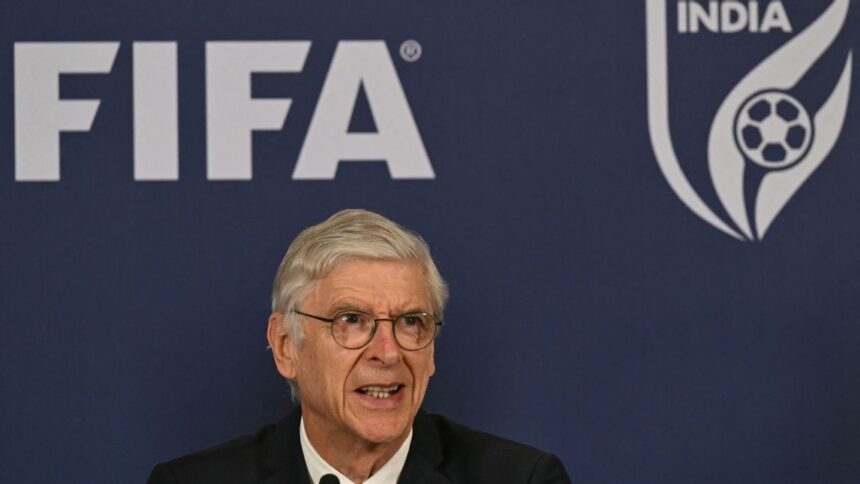Arsène Wenger, FIFA’s global football development chief, has suggested that a change in the offside law, giving greater advantage to the attacking team, could be approved in a year.
The former Arsenal manager first proposed modifying the offside rule five years ago, when he took office at FIFA. Instead of an attacker having to be level with or behind the second-to-last opposing player, the idea is that he can be ahead, as long as at least part of his body is in line.
There will always be situations where a player is offside by a millimeter, regardless of the system used, as it is a binary law.
However, after years of discreet testing, an offside change has not come close to implementation. The IFAB, football’s lawmakers, have remained firm in testing changes to encourage more goals, with offside being a topic on the agenda at each of their meetings in recent seasons.
In March, IFAB pledged to “proactively identify competitions to conduct additional offside tests in order to foster attacking football and encourage goal-scoring opportunities, while maintaining the attractiveness of the game.”

Arsène Wenger first proposed the offside change in February 2020.
Wenger believes that these tests could finally make his idea part of the game. The last time there was a major alteration in the offside rule was in 1990, until that moment an attacker had to be behind the penultimate opponent instead of being level.
“It was in 1990 after the World Cup in Italy when no goals were scored. We decided that there is no longer offside when you are on the same line as the defender.
Arsène Wenger
“In case of doubt, the doubt benefits the forward. That means that when there is a fraction, the forward gets the advantage. With VAR this advantage disappeared and for many people it is frustrating.
Arsène Wenger
That’s why I proposed that, as long as any part of your body is in line with the defender, you are not offside.
Arsène Wenger
We are experimenting with this now. In a year, the decision will be made, by the IFAB, not by me.
Arsène Wenger
Wenger’s initial tests of the idea have not been successful, with concerns that it gives too much to the attacking team and fears that it would have a negative impact tactically. There is no guarantee that such a change would bring more goals, in fact, it could lead to fewer, as defenses would fall back to deeper positions.
A change in a year is unrealistic due to the IFAB meeting cycle: any law change that needs to be approved is agreed upon in December and then voted on in March, while it would also have to be tested in competitive leagues.
The modification of the law for a goalkeeper to hold the ball was exceptionally quick. The tests were first announced in April 2024, with the law modified in March 2025 for implementation in the 2025-26 season. However, that was a relatively minor law change to combat time-wasting, with tests carried out in three non-professional leagues.
Changing the offside rule to this degree would be so momentous that the tests would have to be carried out at a higher level, although not in the main divisions or competitions. The fact that there isn’t even a protocol for such tests, along with the IFAB’s schedule, suggests that it is not viable for the law to change within two years.










